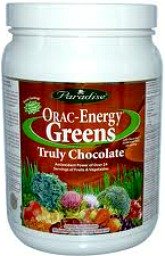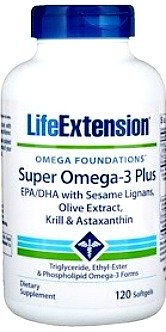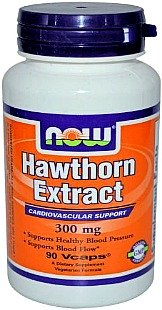Transthoracic echocardiogram
Transthoracic echocardiogram(TTE) is a type of heart examination which is often used to diagnose heart disease with the help of ultrasounds. Actually is the most often type of test used to diagnose heart disease, period.
Although there are other versions of echocardiogram, this one is
prefered. It is safe and effective method which usually lasts around 30 minutes.
HOW TO PREPARE
No special preparation is required. However, it is advised not to eat or drink few hours before transthoracic echocardiogram, especially when it comes to big meals.
USES
Heart ultasound is used by cardiologists to:
- Assess overall condition, function and the size of the heart, its valves, chambers and the sac around the heart
- Evaluate the degree of heart muscle contractions associated with the ejection fraction and heart failure
- Diagnose heart enlargement, cardiomyopathy, murmurs or arrhythmia
- Detect heart attack, cardiac tumors, infections, blood clots or foreign substances in the heart or pericardium
- Monitor function of the artificial heart valves
HOW IS THE TEST PREFORMED
Sonographer uses small device called transducer which transmits high frequency sound waves.
Device then picks up the echos of these sound waves and interpret them as electrical impulses thereby creating an image of the beating heart.
As the name suggests, transthoracic echocardiogram is preform through the thoracic cavity or across the chest wall. The room in which the test is performed is usually darkened to help the sonographer see the pictures on the monitor.
WHAT TO EXPECT DURING THE TEST
You will have to take your clothes off from the waist up and lie on the back or on your left side. Sonographer will also have to apply a gel on your chest, in order to used transducer and preform the test.
You will feel a slight pressure on your chest from the device, during the test. It is like someone poking you with a blunt object but it is nothing to worry about.
Also, you will be asked to stay still, hold your breath as well as to breath slowly or to change your position, while sonographer obtains all the required images of the heart and its structures.
Although electrodes can be placed on your chest, arms and legs to do ECG along with echocardiogram, my doctor did only the heart ultrasound test.
Note: Sonographer may also inject small amount of contrast through an IV, in order to get a better view of the heart.
WHAT HAPPENS AFTER THE TEST
After transthoracic echocardiogram test is done, you will be given a napkin to wipe off the gel off your chest. After that you can put your clothes back on and wait for further instructions from the doctor, in the waiting room.
In my case, the doctor talked with me during the test and explained me the results, after the test.
PROS AND CONS
There is no radiation exposure or other known risk associated with the transthoracic echocardiography. It also provides detailed images of the heart and surrounding structures which makes it useful in diagnosis of many heart related diseases.
You can even hear your heart muscle beating during heart ultrasound which is really surreal feeling or at least it was for me.
On the other hand, in some cases the images won't be clear enough due to lungs, ribs, or body tissue. However, intravenous contrast may be used to resolve this problem. In rare cases, transesophageal echocardiogram can also be used, if combination of transthoracic echocardiogram and contrast is not enough.
- Heart Healthy Diet: Simple Tips and Guidelines
- Learn everything you need to know about heart healthy diet and find the right one for you. Implement few simple tips for immediate benefits.
- Heart Healthy Foods: How to Get the Most from Them
- Heart healthy foods can improve cardiovascular system function. Foods good for the heart are bursting with vitamins, minerals and rejuvenating phytochemicals.
- Herbs for the Heart and Cardiovascular System
- You have heard for hawthorn and garlic but there are few other herbs for the heart which can help in treating heart disease, naturally.
- The Best Heart Health Supplements
- Besides fish oil, there are several heart health supplements which can be useful. This includes Coenzyme Q10, Salicin, vitamin D3 and few others.
- Heart Healthy Spices
- Although there are many heart healthy spices out there, each of them can help prevent and treat heart disease in its own way, thanks to different types of flavonoids in these heart spices.
- Stress and Heart Disease: How are They Connected
- Stress and heart disease are closely related. In order to decrease the risk of heart problems, we have to learn how to handle the stress and treat its consequences, if we are unable to avoid it.
- Cardio Exercises for the Heart and Cardiovascular System
- Cardio exercises are vital part of natural heart disease treatment. However, which kind of heart exercise you should preform, varies from person to person.
- Good vs Bad Cholesterol: How to Improve Cholesterol Values
- Good vs bad cholesterol conflict is somewhat misunderstood. There is no good or bad cholesterol but only high or unbalanced cholesterol.
- Good Fats vs Bad Fats: Nutritional Facts and Guidelines
- What is the real truth when it comes to good fats vs bad fats? How much dietary fats should you consume daily and what are the best food sources of healthy fats?
- High Blood Pressure Remedies
- High blood pressure remedies range from tips and lifestyle modification to herbs and supplements. However, the method that works for someone else, may not work for you.
- Normal Heart Rate: How is Regulated and Influential Factors
- Normal heart rate varies from person to person. Although, age affects resting heart rate, there are many other factors that can raise or decrease heart rate.
- How to Lose Fat: Overlooked Tips for Weight Loss
- How to lose fat is surely one of the most intriguing questions for so many people. However, the answer is very simple. Eat healthy foods, perform fat burning exercises and take care of your hormones.
- Hormones and Heart Disease Connection
- Don't neglect hormones and heart disease connection. If you want to treat or prevent heart disease you have to balance your hormones.
- Heart Disease and Immune System Connection
- Heart disease and immune system connection is often overlooked, while trying to improve cardiovascular system function. However, there are several things you can do to change this.
- Dental Health Heart Disease Connection: Facts and Tips
- Dental health heart disease connection is one of three overlooked factors, along with hormones and immune system. However, with smart and effective approach we can change this.
- Causes of Heart Disease
- There are many causes of heart disease and factors that can increase or decrease your risk for developing heart related problems. Check how to turn the tide in your favour.
- Symptoms of Heart Disease
- There are few main symptoms of heart disease. Find out which are they, how to recognize them as well as my personal experience with some of them.
- Diagnosis of Heart Disease
- Accurate diagnosis of heart disease is the first step toward recovery. You can't start with treatment before you know what kind of disease you have, obviously.
- Treatment for Heart Disease: Medications and Surgeries
- Standard treatment for heart disease consists of surgeries, medications and devices. Which one is right for you, depends on your condition.
- Heart Disease Blog
- This is a blog about natural remedies, personal stories, helpful herbs and supplements, workout program as well as other tips and facts which may help people faced with heart disease.
- Contact Me
- Ask questions and leave comments about this site here.
- About the Author of Heart Health Guide
- About the author of Heart-health-guide.com website.
- Heart Health Guide Sitemap
- This is sitemap of Heart Health Guide.com. If you want to get better overview of informations on this website, you can get it here.
Copyright © - Heart Health Guide - All Rights Reserved.



